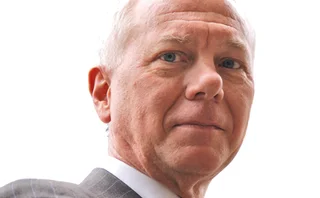
No crash - but the ride will be bumpy
If you are of the more pessimistic view, you would be inclined to believe the stark warnings that the US housing market problems will lead to a recession. But economic fears are not exclusive to the US. The big increases in house price appreciation (HPA) enjoyed by a number of European countries in the past decade are now coming to an abrupt end, with some questioning if a recession (or at least a downturn) could be on the cards in these regions also.
This month Mortgage Risk brings you a special two-part report on HPA in the US, detailing how house price movements will be the biggest factor that shapes banks' mortgage lending decisions and risk modelling in future.
But the story clearly doesn't begin and end there. Month-on-month house price falls are currently being witnessed in Ireland, which - along with Spain - is viewed as the European country most under threat of an economic crash.
At the European Mortgage Federation annual conference last month, economists and mortgage lenders discussed whether the state of the housing markets could contribute to a recession in some European countries. Unsurprisingly, no one was prepared to forecast such a recession was on the horizon. Nevertheless, delegates agreed that house price corrections can be expected across the region.
Tony Moroney, chairman of the Irish Mortgage Council and executive director of EBS Building Society, said economic growth in Ireland would slow to 3% next year, compared to 5% in 2007. But the continued fall in house prices would be stable, rather than huge drops, he said. The only two events, in his opinion, that would place the Irish housing market and economy in grave danger would be a huge interest rate shock or a significant fall in unemployment. Neither is likely to occur, Moroney believes. Likewise, speakers forecast a "smooth correction" in Spanish house prices over the next three years, not a catastrophic crash.
Nevertheless, we are no doubt entering a difficult period in the Euro zone. Over a fifth (23%) of the outstanding non-conforming loans in UK residential mortgage backed securities deals are fixed-rate mortgages - all of which are due to reset by the end of 2008, according to Standard & Poor's, with a major effect on the UK housing market.
The boom in house prices was always going to have one inevitable downside - prices would fall just as dramatically when the bubble burst.
Speaking at the conference, David Miles, chief UK economist at Morgan Stanley, warned that the fate of housing markets can also be self-fulfilling. If people believe house prices will keep falling, it can affect what they are willing to pay for a property - adding more downward pressure on prices. And the vicious cycle begins.
- Dippy Singh, managing editor.
Only users who have a paid subscription or are part of a corporate subscription are able to print or copy content.
To access these options, along with all other subscription benefits, please contact info@risk.net or view our subscription options here: http://subscriptions.risk.net/subscribe
You are currently unable to print this content. Please contact info@risk.net to find out more.
You are currently unable to copy this content. Please contact info@risk.net to find out more.
Copyright Infopro Digital Limited. All rights reserved.
As outlined in our terms and conditions, https://www.infopro-digital.com/terms-and-conditions/subscriptions/ (point 2.4), printing is limited to a single copy.
If you would like to purchase additional rights please email info@risk.net
Copyright Infopro Digital Limited. All rights reserved.
You may share this content using our article tools. As outlined in our terms and conditions, https://www.infopro-digital.com/terms-and-conditions/subscriptions/ (clause 2.4), an Authorised User may only make one copy of the materials for their own personal use. You must also comply with the restrictions in clause 2.5.
If you would like to purchase additional rights please email info@risk.net
More on Economics
Global investment outlook: 2026 and beyond
Broadening, steepening and weakening: Franklin Templeton’s top investment ideas for 2026 and beyond
Webinar – Nowcasting the US economy
Join CME Group Chief Economist, Blu Putnam, as he shares insights using alternative data and nowcasting to monitor developments in the US economy.
Fed Funds Futures in a Post-ZIRP World
As the FOMC returns to more active management of its key target rate, Federal Funds futures have experienced dramatic growth.
Challenging economic pessimism: an optimistic note
A contrarian, upbeat view of the long-term economic outlook
Economists, like hedge fund traders, need open minds
Economists, risk managers and traders must learn the lessons of crisis, says Kaminski
Fed wrong not to start QE tapering, says UBS economist
The surprise decision by the Federal Reserve last month not to scale back its quantitative easing programme will create more volatility, says economist







